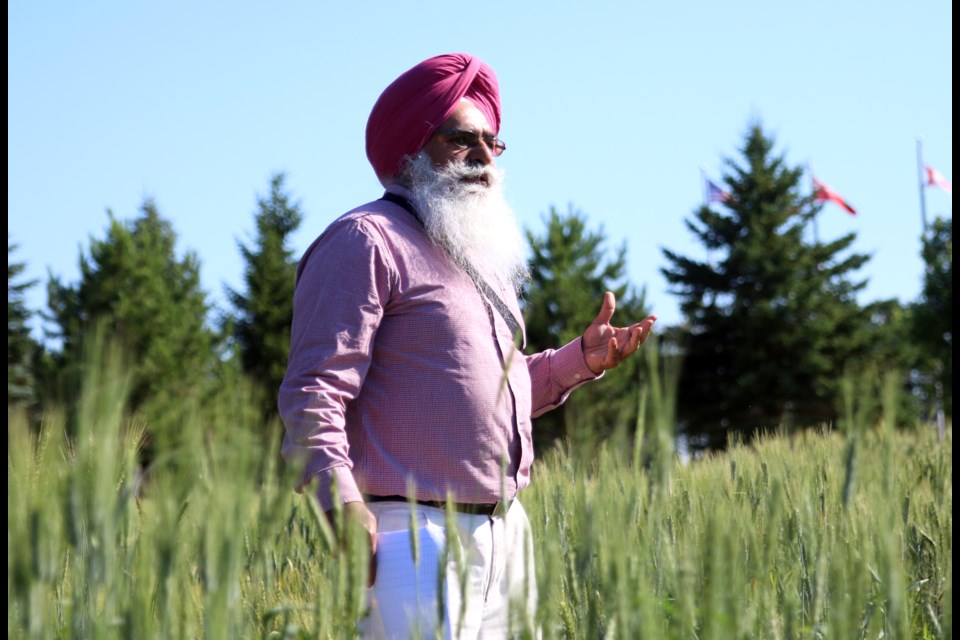THUNDER BAY - For area farmers, seeing is often believing when it comes to just what can grow from and prosper in northern Ontario soil.
On Tuesday, the Lakehead University Agricultural Research Station held its annual summer tour to showcase the research being conducted and some of the new crops being tested.
Tarlok Singh Sahota, director of the Agricultural Research Station, said there are nearly two dozen crops being grown at the station this year, including several new crop varieties of spring wheat and barley, soybean, edible Navy beans, canola, mustard, flax, and quinoa.
“We test not only the conventional crops, but the new crops,” Sahota said. “These new crops bring us the new opportunities, especially at the farm level. For example, winter rye, canola, which farmers have started growing now.”
Research into the different crops can help develop better rotation for fields, better ways to control weeds, disease, and pests, and create bigger crop yields.
“We have to not only sustain the yield, but also improve upon it,” Sahota said. “With the new techniques we’ve developed with fertilizer management, the yields have improved.”
Some of the research projects underway include maximizing yield and quality of Galega, increasing winter wheat hardiness, evaluating winter rye as a cover crop, and evaluating fish waste as a source of nitrogen for spring wheat production.
This research not only benefits the farmers, but the people in the community as well, Sahota said.
“The research here transfers to the consumer as a source of local food from different sources,” he said.
The tour on Tuesday was the first one held since Lakehead University took over control of the Agricultural Research Station last spring.
Andrew Dean, vice president of research innovation at Lakehead University, said it was important to allow the station to continue to focus on agricultural research.
“One of the important things we said when we took this over is that we still want this station to be an agricultural research station that fits the needs and desires of the farming community in Northwestern Ontario,” Dean said.
Since taking control of the research station, Dean said there has already been interest from faculty who want to conduct research projects looking into soil, climate change, and forestry.
But the station still serves an important purpose for area farmers who are interested in diversifying crops, Dean said, because there are a lot of crop varieties such as corn that are not very prevalent in the area.
“Is there a way to get those kinds of crops here and increase the yield of the current crops we have so the value farms get from a hectare of land increases and is more sustainable for the future?” Dean continued.
The tour on Tuesday was meant to show farmers and researchers firsthand what is being done on a small scale, which can then be taken back to the farm and into the fields.
“If you only look at the data or read the articles, they don’t have as a good idea as if they see something,” Sahota said. “When they look at the new crop, they see how it is going, how it looks, how tall it is, how the grains are, and things like that.”
“Two of our farmers saw the beautiful crop and they started growing flax,” he continued. “This seeing convinces them that any crop that is growing well here, will grow well on their farm as well, because it is basically the same area.”
